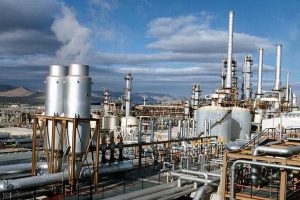What Is Diesel fuel: Types Gas oil + Applications
What is gas oil? Gas oil, also called diesel fuel, is a liquid fuel that refineries produce from crude oil or alternative sources such as biodiesel and synthetic diesel. Furthermore, its use is mostly in diesel engines and industrial machinery. In the introduction, we may need to explain what diesel fuel is and how it differs from gas oil. You should also know that this term refers to any fuel used in diesel engines, such as traditional gas oil, Fischer–Tropsch diesel, or biodiesel. Therefore, in this article from the Iran ETrade blog, a specialized source for bitumen price updates, we will explain the properties and types of diesel fuel along with its applications.
What is diesel fuel?
Gas oil is a liquid fuel that refineries obtain from crude oil. Consumers then use it in diesel engines to produce mechanical energy.
What is diesel fuel? Gas oil is a type of middle distillate fuel that refineries produce from crude oil. Then, after distribution, consumers can use it in diesel engines such as heavy machinery and construction equipment.
Refinery units produce this fuel. But what is a gas oil refinery? A gas oil refinery is a unit that separates gas oil from crude oil through distillation and refining processes. It then removes gas oil’s impurities, such as sulfur, to provide high-quality fuel suitable for use in diesel engines.
This fuel has a higher density and a lower flash point compared to gasoline. It is also designed to ignite spontaneously under high pressure without the need for a spark.
What is diesel fuel, and why is it considered one of the most widely used fuels in the world? The discovery of this fuel began in the late 19th century with the invention of the diesel engine by Rudolf Diesel and the experiments of Ignacy Łukasiewicz. Over time, advancements in refining and hydrotreating improved its quality and compatibility with modern engines. The physicochemical properties of gas oil—such as density, optimal viscosity, pour and cloud point, sulfur content, and cetane number—directly affect its combustion efficiency, engine durability, and pollutant emissions. Furthermore, different types of gas oil include traditional gas oil, Fischer–Tropsch diesel, and biodiesel. Each type has distinct chemical compositions and properties and is suitable for use in pure form or blended with traditional gas oil. The uses of this fuel are extensive, including road transportation, generators, agricultural and construction machinery, and even military vehicles.
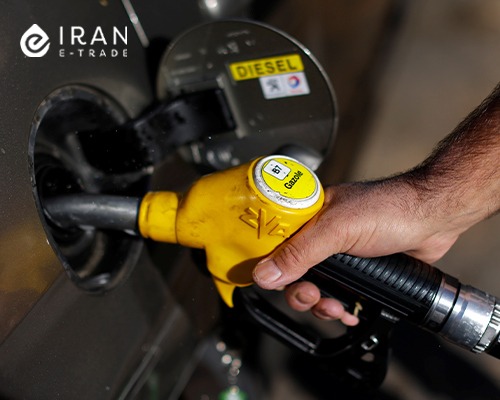
History of diesel fuel Production
The origins of diesel fuel production and use date back to the late 19th century, with the invention of the diesel engine by Rudolf Diesel and the early experiments of Ignacy Łukasiewicz.
In the beginning, heavy fuels obtained from crude oil distillation were directly used in early diesel engines. Then, with advances in refining technology and the development of improved formulations, producers created gas oil with higher ignitability, lower sulfur content, and reduced emissions, which made it more compatible with the needs of modern diesel engines.
Chemical Analysis of diesel fuel
At the chemical analysis level, gas oil is a mixture of aliphatic and aromatic hydrocarbons with medium molecular weight.
Standard analyses include determining these components in diesel fuel: carbon distribution (C10–C20), percentage of paraffins/naphthenes/aromatics, the presence of sulfur compounds (thiophenes and derivatives), approximate amounts of nitrogen and oxygen, and the content of volatile materials and impurities.
In addition, analysts usually measure and report gas oil’s physicochemical properties such as initial boiling point, viscosity, cetane number, and aniline point.
Properties of diesel fuel
What is gas oil? It is a diesel fuel with optimal density, viscosity, and cetane number. Also, its suitability for industrial and transportation applications depends on properties such as pour point, distillation, sulfur content, and aniline point.
To delve into the details of what gas oil is, this brief introduction is necessary: as an energy carrier, diesel fuel must maintain a balance between adequate combustibility, flow properties at low temperatures, and minimal environmental impact. Therefore, this serves as the starting point for examining the practical characteristics of gas oil.
- Density: The density of gas oil indicates its mass per unit volume compared to other fuels. As the content of petroleum hydrocarbons and aromatics increases, the density of gas oil also rises.
- Distillation: This property is very important for evaluating gas oil’s quality and performance, and it varies depending on the type of crude oil and its refining process.
- Viscosity: Viscosity is a parameter that indicates the resistance of a liquid to flow. diesel fuel has relatively high viscosity due to its characteristics.
- Pour and Cloud Point: These two parameters indicate fuel behavior at low temperatures. The higher the aromatic content in gas oil is, the lower the pour and cloud points are, resulting in better diesel performance in cold conditions.
- Sulfur Content: The presence of sulfur is an important environmental and technical indicator. High sulfur content can cause corrosion in diesel engine components and increase air pollution.
- Cetane Number and Aniline Point: Gas oil’s ignition quality or combustion delay is measured by its cetane number. On the other hand, its aromatic content and solvent power are assessed by using the aniline point.
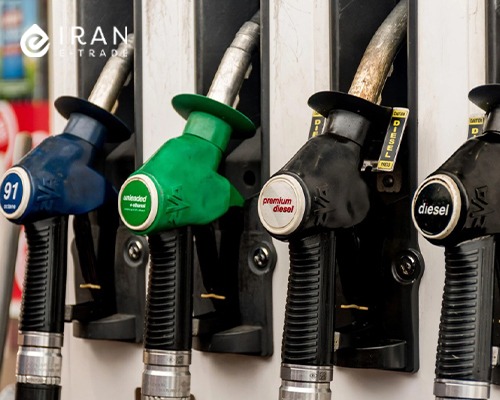
Types of diesel fuel and Their Differences
In this section, we will examine the different types of gas oil. Gas oil is not a singular product. Therefore, depending on the application and standards, it is produced in several different grades.
Traditional Gas Oil
- The most common diesel fuel in the world
- Produced from crude oil distillation in refineries
- Contains sulfur and aromatic compounds, which can pollute the environment
Synthetic diesel fuel
- Produced from natural gas (GTL), coal (CTL), or biomass (BTL)
- Has Fischer–Tropsch diesel, obtained through synthetic chemical reactions
- High purity, has very low sulfur content, and stable performance in diesel engines
Biodiesel
- A biofuel produced from renewable sources such as vegetable oils (soybean, canola, palm) or animal fats
- Can be used in pure form (B100) or blended with traditional diesel fuel (e.g., B20)
- Reduces greenhouse gas emissions and is the only type of diesel that can help improve the carbon dioxide cycle
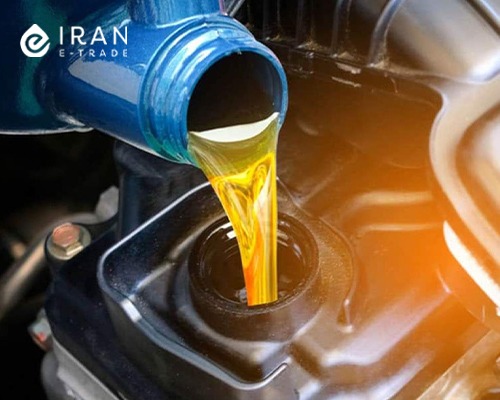
What Are the Uses of diesel fuel?
What is gas oil’s use? To better understand what gas oil fuel is, you should know that it is one of the most widely used energy carriers in the world. Therefore, it plays a fundamental role in transportation, industry, and agriculture.
1. Vehicle Fuel
diesel fuel serves as the primary fuel for trucks, buses, and many diesel passenger vehicles. Its high cetane number provides smoother combustion and better thermal efficiency. Therefore, it is the preferred choice for heavy transportation and long-distance routes.
2. Generator Fuel
In emergency and industrial power generators, diesel fuel is the best option for a stable electricity supply due to its high energy density and storage stability. Therefore, this trait allows Diesel to generate electrical power for hospitals, data centres, and remote workshops during power outages.
3. Fuel for Agricultural and Construction Equipment
Machines such as tractors, combine harvesters, excavators, and loaders require fuel that provides high torque and efficient consumption for continuous operation. Gas oil ensures gradual combustion, consistent power, and engine durability; Therefore, it is a good choice for agricultural machinery.
4. Military Vehicles
What is gas oil’s use in military vehicles? The military uses gas oil to fuel tanks and trucks because it is safer (less flammable than gasoline) and provides high torque in operational fields.
What Are the Benefits of Using diesel fuel?
High efficiency, easy availability, economical consumption, and optimal viscosity are some of the benefits of using gas oil. Furthermore, these benefits extend the vehicle’s engine life and reduce its maintenance and repair costs.
Due to its chemical nature and combustion properties, gas oil plays an unrivalled role in many industries and transportation sectors. But do you know what the other advantages of using gas oil are?
- High Efficiency and Optimal Consumption: Due to its higher energy density compared to gasoline, diesel fuel provides greater thermal efficiency.
- Easy Availability: Has a major network distribution
- Cost-Effectiveness: Thanks to higher efficiency and lower consumption, the fuel cost per kilometer travelled or per kilowatt-hour of energy produced in diesel engines is lower.
- Reduced Maintenance and Repair Costs: Gas oil’s formulation, with optimal and stable viscosity, prevents wear on fuel system components, leading to longer engine life and lower costs for repairs and routine maintenance.

Risks and Hazards of Using diesel fuel
Understanding the scientific risks of gas oil helps us both use this widely applied fuel efficiently and safely.
Traditional gas oil produces high amounts of sulfur, particulate matter, and carbon dioxide, making it one of the main sources of air pollution and greenhouse gases. Lower-grade versions of this fuel, especially in low-speed engines, generate more carbon residues and contain higher sulfur levels, which are subject to strict regulation.
From a safety perspective, the slow evaporation of diesel fuel, if it leaks onto road surfaces, creates greasy patches that reduce tyre traction; this in turn potentially causes dangerous slips for vehicles, particularly motorcycles and bicycles.
Gas oil is flammable, and its vapors can cause explosion or fire hazards if they accumulate. Prolonged skin contact with it can also cause irritation, and inhaling the vapors may lead to respiratory problems. In addition, incomplete combustion of gas oil produces soot and nitrogen oxides, which are harmful to human health and the environment. Moreover, spills of diesel fuel into soil or water lead to chemical pollution and require careful control.
Tips For Storing diesel fuel
For the safe and long-term storage of gas fuel, you must ensure its fuel quality, tank safety, and environmental protection. Therefore, we will present some practical recommendations for storing gas oil:
1. Proper Use of the Tank
What is gas oil’s proper use in tank? It is important to use standard metal or polyethene storage tanks that are resistant to corrosion and leaks.
2. Preventing Water Contamination
Leaks or spills of diesel fuel can pollute water sources. To prevent fuel from reaching groundwater, you should install a collection tray under the tank and use automatic shut-off systems.
3. Regular Inspection
Because of gas oil’s susceptibility to microbial contamination and sediment formation, tanks and transfer lines must be inspected periodically to detect and fix leaks, corrosion, or sludge buildup.
4. Fuel Level Monitoring
Continuous monitoring of fuel levels and the use of digital or mechanical gauges help prevent fuel overflows, shortages, or air entering the system.
5. Filtration
Thanks to the formulation and chemical properties of diesel fuel, multi-stage filters can remove its suspended particles, water, and microbial contamination. Therefore, filtration ensures optimal engine performance and longer injector life.
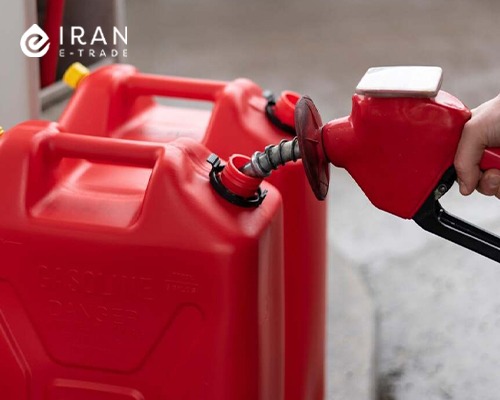
How Is diesel fuel Refined?
What is gas oil? It is a middle distillate product of crude oil that undergoes refining, hydrotreating, and in some cases thermal or catalytic cracking to improve its combustion quality and environmental performance.
Gas oil is one of the middle distillate products of crude oil, separated at temperatures between about 250 and 350 degrees Celsius. After separation, it goes through hydrogen treatment (hydrotreating) to reduce its sulfur, nitrogen, and aromatic compounds, which improves both its combustion quality and environmental profile.
In addition, some refineries use more advanced processes, such as thermal or catalytic cracking, to produce gas oil with specific properties.
Freezing Temperature of diesel fuel
The freezing point of diesel fuel depends on its chemical composition and refining process, but it usually ranges between –8 and –15 degrees Celsius.
Gas oil contains heavy and paraffinic hydrocarbons, which crystallize at low temperatures. Therefore, to prevent filter blockage and reduce engine performance, operators use modified gas oils with lower freezing points or antifreeze additives.
Water in diesel fuel
To better understand what gas oil is and how water may be present in it, we have to consider its structure and physical properties.
Water in diesel fuel—whether in free, dissolved, or emulsified form—can reduce fuel quality and damage engine components. Free water usually settles at the bottom of tanks. However, dissolved or emulsified water can cause fuel cloudiness, microbial growth, and filter blockage.
Does Water Dissolve in diesel fuel?
Given the nonpolar nature of gas oil and the polar nature of water, water does not fully dissolve in gas oil. However, a limited amount of water can exist in dissolved form, especially at higher temperatures when solubility increases.
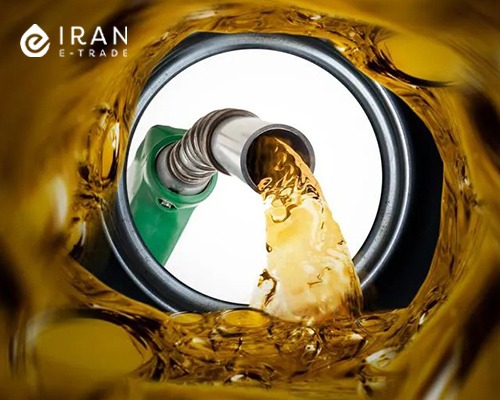
Why Does EPA Regulate Diesel Additives?
Gas oil contains compounds such as sulfur, aromatics, and particulate matter that can cause air pollution and environmental damage. For this reason, the U.S. Environmental Protection Agency (EPA) regulates diesel additives to control emissions, protect public health, and enhance engine performance.
The Difference Between Gasoline and diesel fuel
What is gas oil and gasoline’s difference? diesel fuel is a fuel with long hydrocarbon chains that is used in diesel engines with compression ignition. However, gasoline is a lighter compound with shorter chains used in spark-ignition engines.
In terms of physical properties, gas oil is denser, less volatile, and ignites more slowly. But gasoline is more volatile, ignites faster, and is better suited for high-revving engines. In addition, gas oil produces more energy per litre, while gasoline generates fewer pollutants.
What Is The Difference Between Crude Oil and diesel fuel?
Crude oil is the raw material extracted from deep underground and contains a wide range of hydrocarbons with diverse physical and chemical properties.
Gas oil is one of the products of crude oil refinement, obtained through atmospheric distillation followed by chemical treatment.
Factors Affecting diesel fuel Prices
The price of diesel fuel is influenced by a combination of economic, technical, and political factors. Since the nature of gas oil depends on crude oil quality, refining processes, and environmental standards, fluctuations in global oil supply, sanctions, refining costs, and changes in industrial demand directly impact gas oil prices.
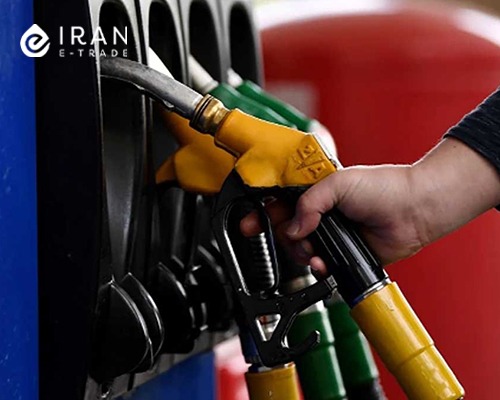
Frequently Asked Questions
In this section, we address the most common questions regarding what gas oil is and its key characteristics.
What Is diesel fuel and How Is It Produced?
What is gas oil? Gas oil is obtained from the refining of crude oil and the separation of heavy hydrocarbons at temperatures around 250 to 350 degrees Celsius.
What Are the Uses of Gas Oil?
Gas oil is applicable in diesel engines of heavy vehicles, industrial machinery, diesel generators, ships, and some light-duty vehicles.
Which Is Better: Diesel Fuel or Gasoline?
Diesel fuel produces more energy per litre and is better suited for heavy loads, whereas gasoline performs better in light vehicles that require high acceleration.
What Is the Density of Gas Oil?
At 15.6 degrees Celsius, the density of gas oil typically ranges between 820 and 860 kilograms per cubic meter.
Can Crude and Gas Oil Be Mixed?
Directly mixing crude with gas oil is not recommended, as their combustion properties and emission characteristics differ and may damage the engine.
What Is The Difference Between Diesel And Gas Oil?
Gas oil is a type of diesel fuel; the term “diesel” refers to any fuel used in a diesel engine, while “gas oil” usually refers to its petroleum-based form.
What Is the Solvent for diesel fuel?
Gas oil dissolves in non-polar solvents such as kerosene, toluene, and hexane, but it is not miscible with polar substances like water.
What Is Gas Oil D2?
As mentioned in the discussion of gas oil types, diesel fuel can be produced in various grades. Therefore, gas oil D2 is one of these standard grades, known as light diesel fuel, and can be used directly in both light and heavy diesel engines without complex processing.
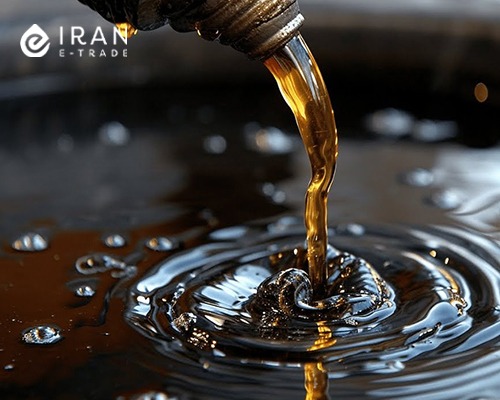
source: fosterfuels, axi-international
Bitumen Price
- Petroleum Products and Petroleum Derivatives: Introduction + Uses
- Oil Refineries in Iran: Complete List + Comparison
- Gasoline Producing Refineries in Iran: 12 Major Refineries
- Largest Oil Producers in the World: The Top 13 Countries...
- The Largest Bitumen Refineries In The World: Top 20 Refineries...
- What Is An Oil Lubricant: Types, Applications + Production





